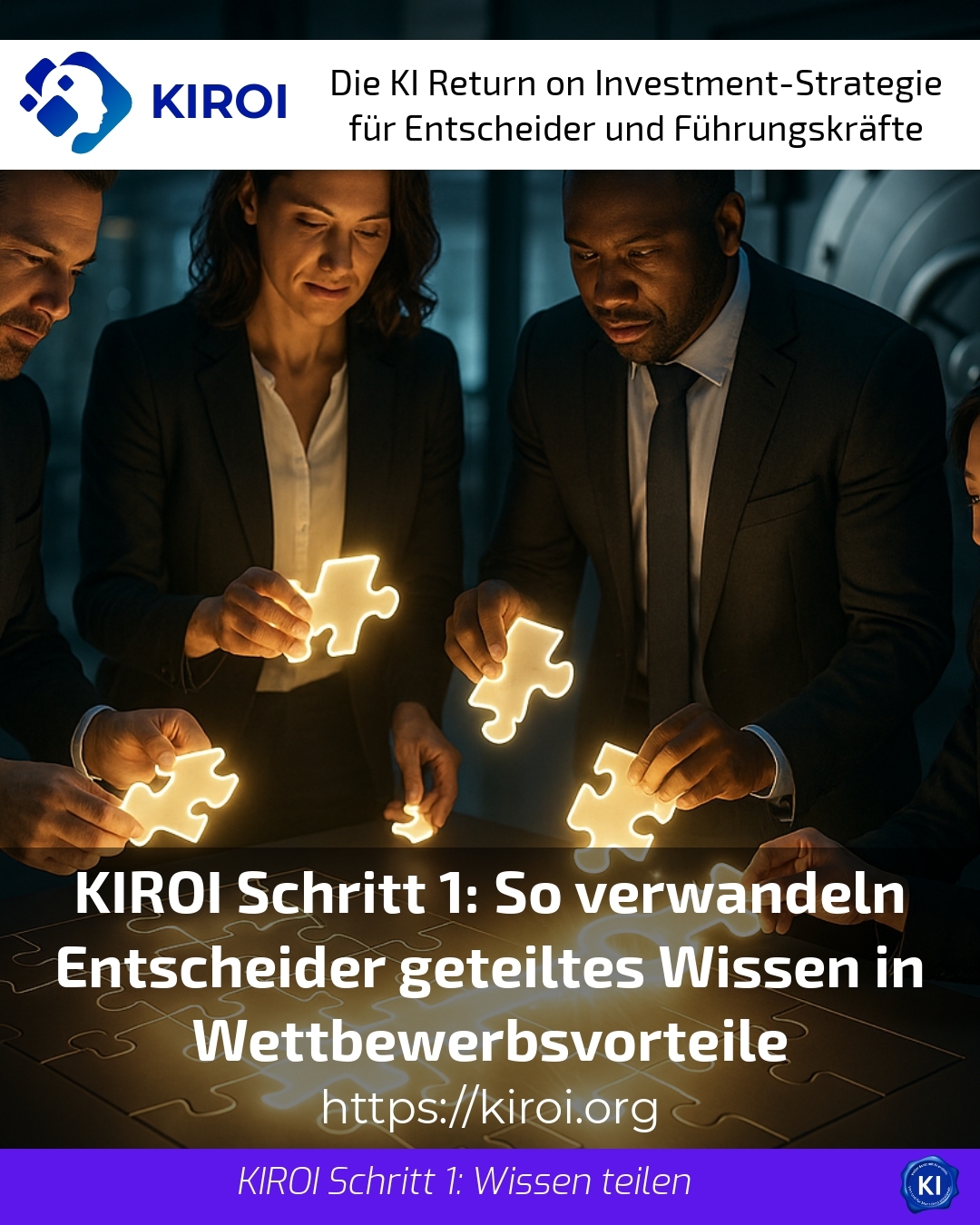Knowledge as a strategic resource in the digital transformation
At a time when technologies and market requirements are constantly changing, sharing knowledge is proving to be a key success factor for companies. More than ever, companies that not only collect internal knowledge, but also actively share and utilise it, gain a decisive competitive advantage. Managers are supported in making well-founded and appropriate decisions when they can draw on the collective expertise within the company.
The challenge is not only to make information accessible, but also to integrate the respective competences and perspectives into decisions. This turns isolated knowledge into a living resource that enables rapid responses to market changes and innovative solutions.
Creating structures for successful knowledge exchange
In order for knowledge to be shared and utilised effectively, an open corporate culture and technical systems that promote exchange are required. Learning cultures that value mutual support are just as important here as clear processes for knowledge transfer.
Especially in dynamic industries, clients often report that the availability of documented knowledge significantly shortens the response time to challenges. Giving employees access to specialist expertise that was previously only available to individuals increases productivity and also makes it easier to train new team members.
This is supported by an open dialogue that not only shares information, but also leaves responsibilities and decision-making powers where the knowledge originates. Instead of centralised control, local teams benefit from being able to contribute their expertise directly and remain capable of acting.
Examples from the industry show the versatility
In mechanical engineering, the exchange between development and production teams promotes the practical implementation of technical innovations in the early project phases. Here, the combination of shared knowledge and situational decision-making helps to avoid errors and shorten development times.
In the healthcare sector, the structured sharing of process knowledge and the latest treatment methods enables teams to react quickly to new patient needs. This is supported when expert knowledge is documented in a comprehensible manner and made available across departmental boundaries.
In the financial sector, shared findings from risk assessments and market monitoring help decision-making bodies to identify opportunities and minimise losses. Transparent knowledge sharing creates a harmonised strategy that reacts flexibly to changing conditions.
KIROI BEST PRACTICE at company XYZ (name changed due to NDA contract) The company supports its project teams with moderated knowledge exchange formats in which collective expertise is not only collected but also directly translated into practical recommendations for action. Coaching is used to provide teams with impetus for new ideas and methods of collaboration so that they can address challenges independently. This is particularly helpful when different specialist areas pool their expertise and work together in agile projects.
KIROI BEST PRACTICE at ABC (name changed due to NDA contract) As part of the digital transformation, emphasis was placed on systematically recording the expertise of experienced employees and making it accessible to young colleagues. The coaching helped to professionalise the process of knowledge documentation so that the generational change was accompanied and the continuity of expertise was ensured. This led to a faster integration of new technologies while minimising the loss of knowledge.
KIROI BEST PRACTICE at DEF (name changed due to NDA contract) The introduction of a digital platform that facilitates the exchange of knowledge across language and cultural boundaries was supported for an internationally active team. The coaching promoted the development of common competences and a culture of open sharing. This enabled synergies between the locations to be utilised and joint innovation projects to be accelerated.
Impulses for support through KIROI coaching
Our coaching helps you to sustainably improve the processes and structures for sharing knowledge in your organisation. Clients often report that they gain new perspectives through external impulses in order to adapt internal collaboration and knowledge management to the company's goals.
The focus is less on rigid promises of effectiveness and more on support for individual project development. This allows each team to develop independent solutions that suit their own culture and organisation. This also opens up scope for innovation and adaptability in times of rapid change.
My analysis
Sharing knowledge is more than just providing data: It means consciously organising communication, responsibilities and learning. Companies that accompany this process open themselves up to new opportunities and create sustainable competitive advantages. The support of experienced coaching can provide impetus that goes beyond the mere teaching of methods and leads to real change. It is important to take individual needs and challenges into account in order to optimally utilise the potential of collective knowledge.
Further links from the text above:
[1] The 7 secrets of successful leadership in the digital era
[2] Applied Knowledge Management - Linz - JKU ePUB
[3] Knowledge is power - Shared knowledge is speed
[4] Securing knowledge and generational change: an important topic for SMEs
[6] Knowledge Sharing - Shared knowledge is everything
[7] How companies create competitive advantages with open innovation















